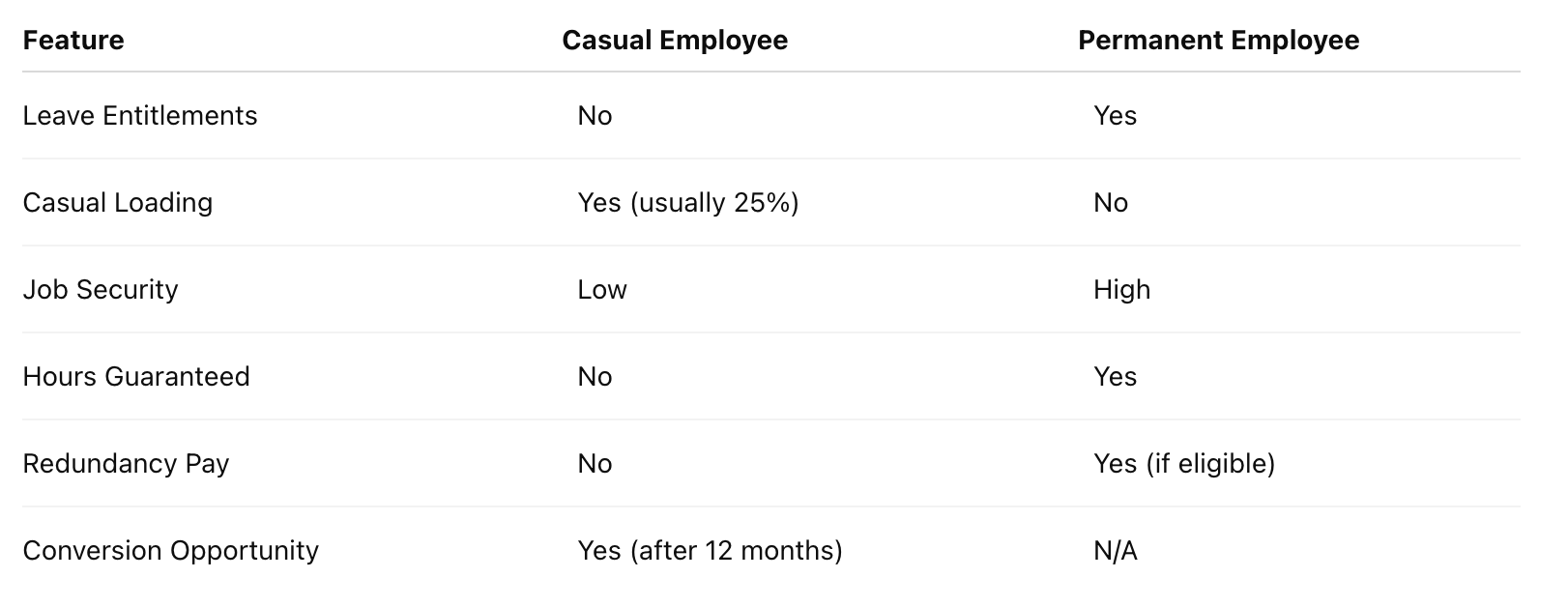A casual employee is a worker engaged without a firm commitment to ongoing work or a guaranteed schedule. Unlike permanent employees, casuals typically work irregular hours and are paid based on hours worked, often with a casual loading (usually 25%) in lieu of paid leave and other entitlements. This arrangement provides flexibility for both the employee and the employer, but it also comes with specific legal definitions and protections under the Fair Work Act 2009.
🔗 Fair Work – Casual Employees
Casual employees are paid an additional percentage, typically 25%, n top of their base hourly rate. This is called casual loading, and it compensates for the lack of:
This loading is stipulated in most modern awards and enterprise agreements.
The Fair Work Act defines a casual employee as someone who:
To determine casual status, the initial employment agreement is assessed, not the pattern of hours worked. However, regular and systematic hours over time may make the employee eligible for casual conversion to part-time or full-time.
While casuals don’t receive the full suite of entitlements that permanent employees do, they still have important rights:

Microkeeper supports businesses with:
Yes, but it's best practice to provide notice where possible. Enterprise agreements or contracts may have specific terms.
Yes. Casuals have no obligation to accept offered shifts.
If a casual earns over $450/month (or works more than 30 hours/week under some awards), they’re entitled to employer-paid super.
Yes, if they’ve worked for the employer regularly for more than 6 months (or 12 months in a small business).
Casual employees play a vital role in Australia’s workforce, offering businesses agility while giving workers flexibility. However, employers must understand the legal framework and apply entitlements like casual loading and conversion options properly. With Microkeeper, businesses can manage casual staffing efficiently, compliantly, and transparently.
Disclaimer: This article is general in nature and does not constitute legal advice. For award-specific guidance, consult the Fair Work Ombudsman or an employment lawyer.